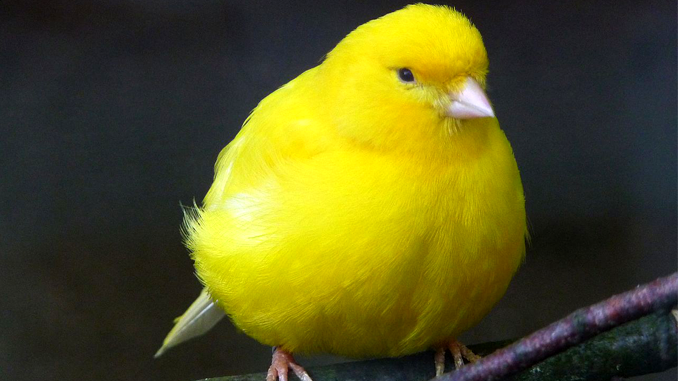
The Magician’s Twin: C. S. LEWIS ON SCIENCE, SCIENTISM, AND SOCIETY
Beloved for his Narnian tales for children and his books of Christian apologetics for adults, best-selling author C.S. Lewis also was a prophetic critic of the growing power of scientism in modern society, the misguided effort to apply science to areas outside its proper bounds. In this wide-ranging book of essays edited by John G. West, contemporary writers probe Lewis’s warnings about the dehumanizing impact of scientism on ethics, politics, faith, reason, and science itself. Issues explored include Lewis’s views on bioethics, eugenics, evolution, intelligent design, and what he called “scientocracy.”
One thing Lewis is not particularly well known for is his views on science.
Yet he ultimately wrote nine books, nearly 30 essays, and several poems that explored science and its cultural impact, including The Discarded Image, his last book, which critically examined the nature of scientific revolutions, especially the Darwinian revolution in biology.[ii] Lewis’s personal library, meanwhile, contained more than three dozen books and pamphlets on scientific subjects, many of them dealing with the topic of evolution. Several of these books were marked up with underlining and annotations, including Lewis’s copy of Charles Darwin’s Autobiography.[iii]
Throughout his life, Lewis displayed a healthy skepticism of claims made in the name of science. He expressed this skepticism even before he was a Christian. For example, while still an unbelieving undergraduate in 1922, he recorded in his diary a discussion with friends where they expressed their doubts about Freud.[iv] In 1925, he wrote his father about his gratitude toward philosophy for showing him “that the scientist and the materialist have not the last word.”[v] The next year he published his narrative poem Dymer, which offered a nightmarish vision of a totalitarian state that served “scientific food” and “[c]hose for eugenic reasons who should mate.”[vi]
In 1932, just a few months after becoming a Christian, Lewis wrote to his brother about the efforts of the Rationalist Press Association to publish cheap editions of scientific works they thought debunked religion. Lewis said their efforts reminded him of the remark of another writer “that a priest is a man who disseminates little lies in defence of a great truth, and a scientist is a man who disseminates little truths in defence of a great lie.”[vii]
By the 1940s and 50s, Lewis became more vocal about the looming dangers of what he called “scientocracy,” the effort to hand over the reigns of cultural and political power to an elite group of experts claiming to speak in the name of science.[viii] Lewis regarded this proposal as fundamentally subversive of a free society, and he worried about the creation of a new oligarchy that would “increasingly rely on the advice of scientists till in the end the politicians proper become merely the scientists’ puppets.”[ix]
Lewis took pains to emphasize that he was not “anti-science.”[x] But he unequivocally opposed scientism, the wrong-headed belief that modern science supplies the only reliable method of knowledge about the world, and its corollary that scientists have the right to dictate a society’s morals, religious beliefs, and even government policies merely because of their scientific expertise.
Because Lewis died nearly five decades ago, we might be tempted to think that he inhabited a vastly different world than we do when it comes to the relationship between science and culture. But in key respects, Lewis’s world was very much like our own. Then, as now, certain prominent intellectuals claimed that science provides a view of the universe that refutes the traditional religious view. Then, as now, certain pundits claimed that you were “anti-science” merely for being skeptical of certain claims made in the name of science. And then, as now, some spokespersons for the scientific establishment insisted that public policy should be guided—even dictated—by an elite class of “scientific” experts.
As the essays in this book show, Lewis has important things to tell us about the limits of science, the need for dissent in science, and the dangers of trying to govern in the name of science. Along the way, Lewis offers penetrating insights into many hot-button issues of our time, including evolution, intelligent design, bioengineering, moral relativism, and even the role of government.
Consider this book an invitation to think more deeply about the growing power of science in the public square by drawing on the timeless wisdom of C.S. Lewis. After you have read the book, I encourage you to avail yourself of the additional articles, companion videos, and other resources at the website www.cslewisweb.com, including a new documentary film about Lewis and scientism inspired by this book.
C.S. Lewis Web
Watch: The Magician’s Twin: C.S. Lewis and the Case against Scientism
“More than a half century ago, famed writer C.S. Lewis warned about how science (a good thing) could be twisted in order to attack religion, undermine ethics, and limit human freedom. In this documentary “The Magician’s Twin: C.S. Lewis and the Case Against Scientism,” leading scholars explore Lewis’s prophetic warnings about the abuse of science and how Lewis’s concerns are increasingly relevant for us today.”
You can view The Magician’s Twin Three-Part Documentary Series, here.
